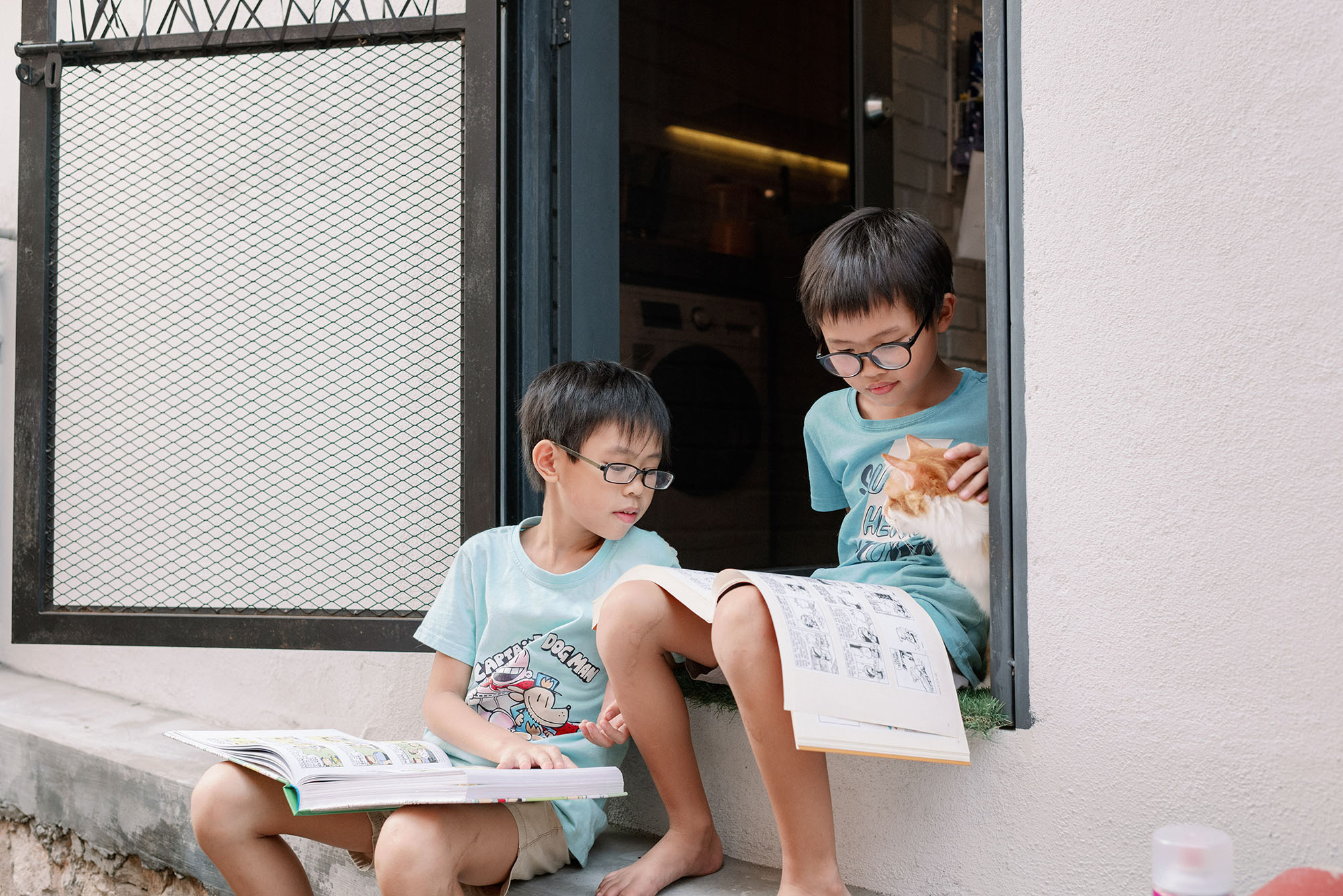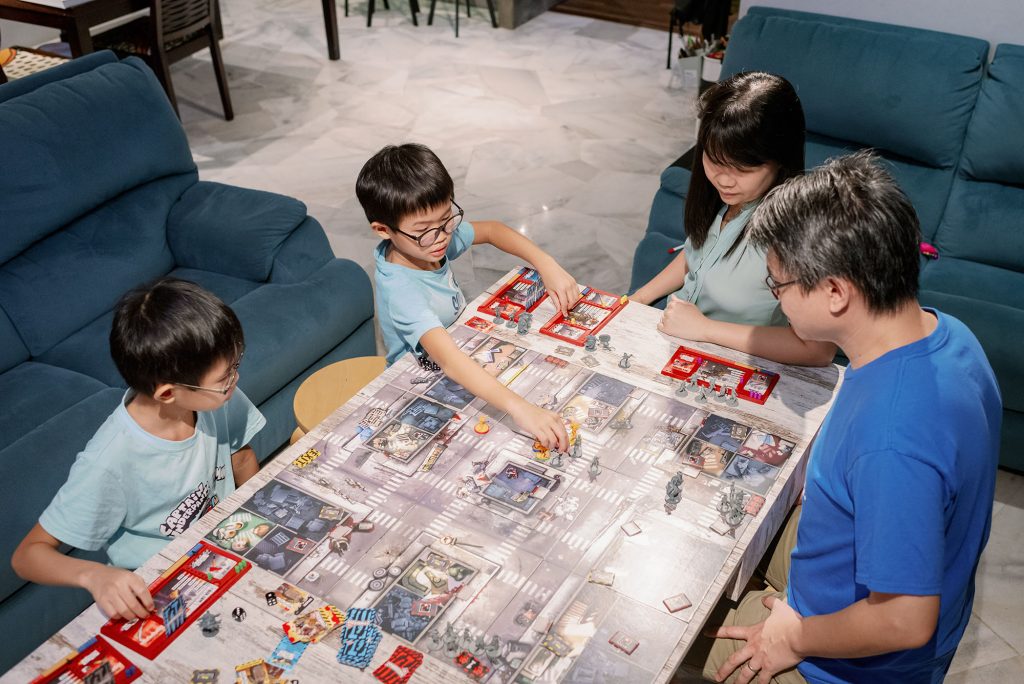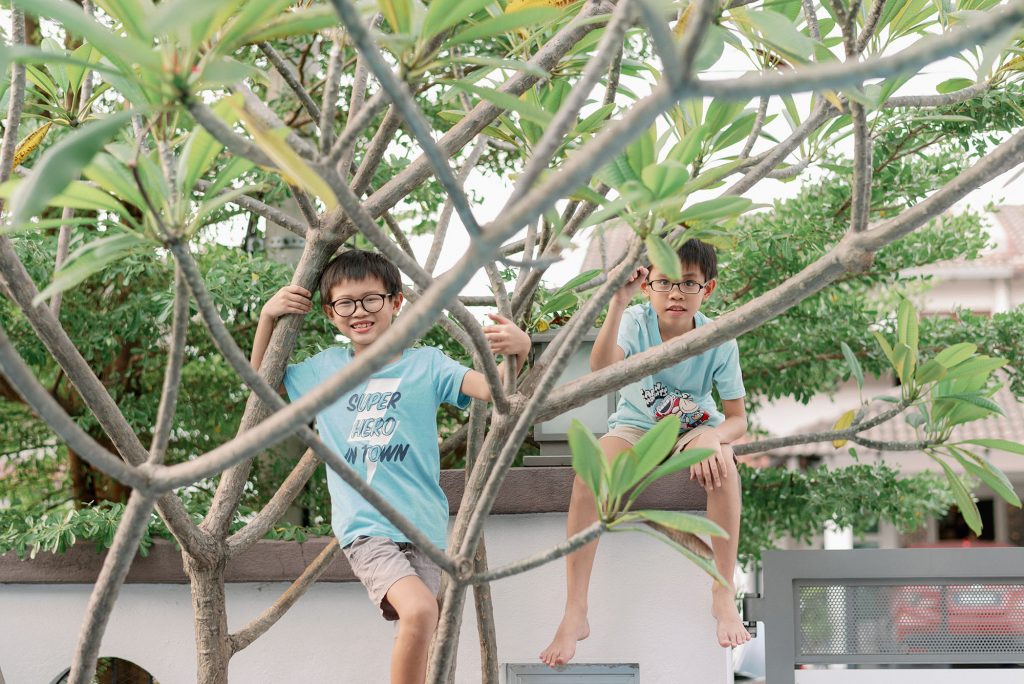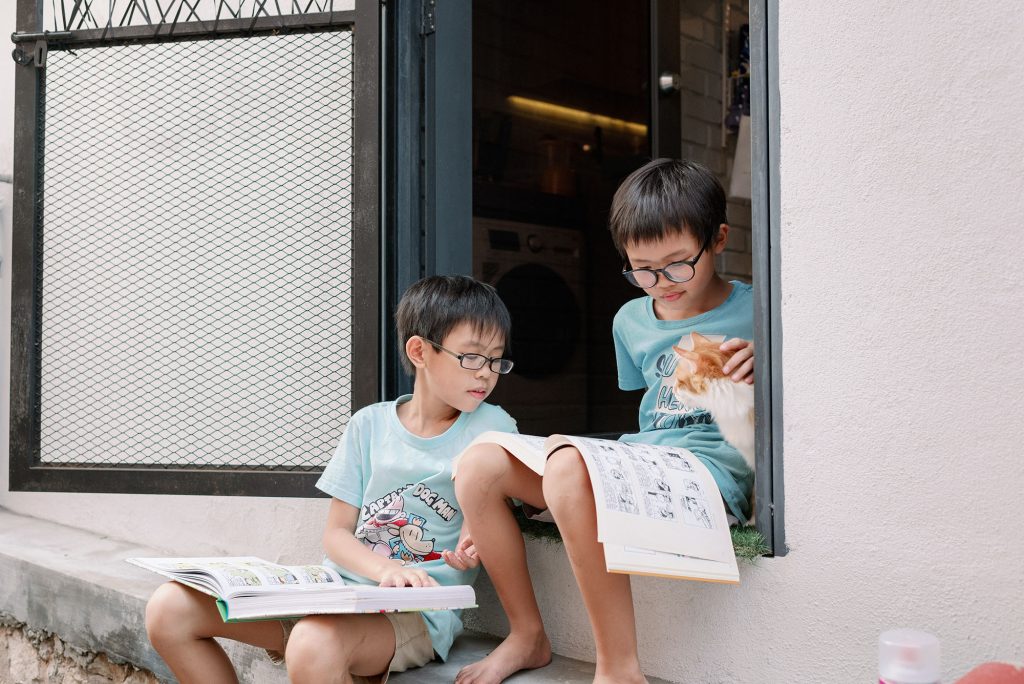Very often using a media device is one of the easiest ways to keep children entertained and educated, or sometimes… ‘baby-sitted’. But the truth is, humans weren’t designed to spend our days glued to a screen, just consuming information or interacting in a one-dimensional way.
We were also created to move, play, create, and enjoy the physical world around us and those whom we share it with.
We know this. Yet, the balance is a tough one to strike.
How do modern-day parents approach this in our media-induced world today? How do we raise children to appreciate the world beyond their screens? To take joy in being creative offline as much as online?
We speak to Daniel and Jessica Kong, parents of two wonderful boys aged 8 and 10 who, just like other children their age – have their struggles with screen time limits too.
We’re here to talk about managing media exposure with children, but as a family. Yet the truth is, the media is so much a part of our lives today. What are your thoughts on this?
Daniel:
We have always been a bit more restrictive when it comes to screen time. It’s a conscious effort for us. But moving to this new phase of lockdown, [screen time] becomes more convenient, the kids require a bit more screen time for school, children’s church, and parties, etc. It’s all through the same medium. So for them, it has become an acceptable new way of interacting.
Jessica:
For the first two months [of lockdown], I was doing playdough with them, and I was making stuff with them. But two months becomes five months and you run out of ideas, you get tired. So then the easiest babysitter is always the screen. But for us,
it’s then having to be conscious of that, and asking ourselves, “Are we okay with this?”
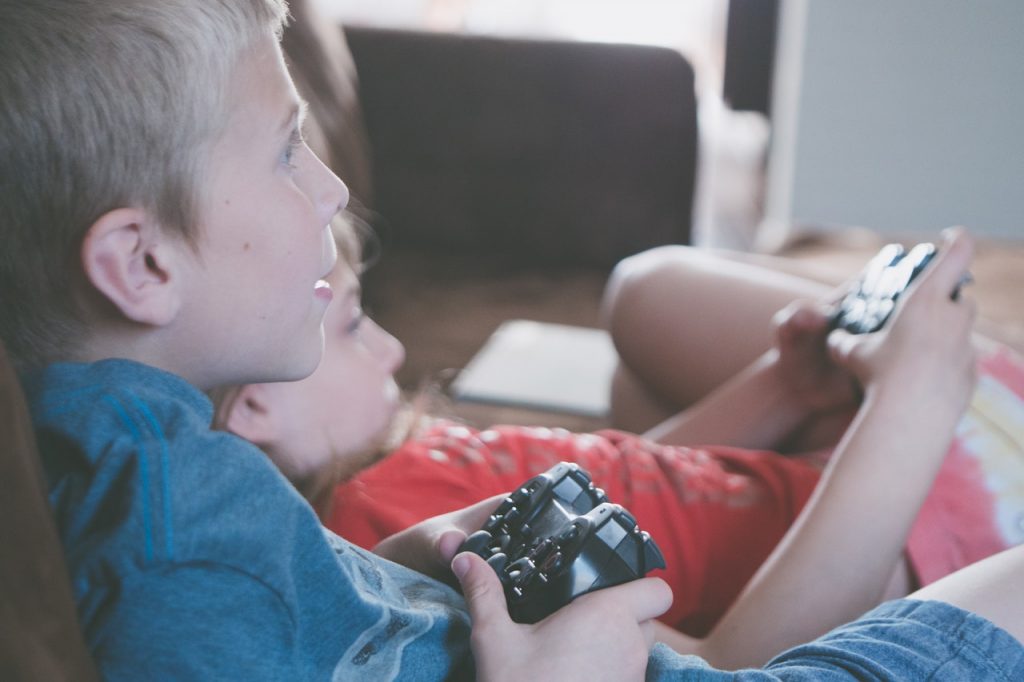
Photo by Jessica Lynn Lewis from Pexels
What’s media consumption or exposure like in your home?
Jessica:
For us, screen time and media is not a given. So it’s not like “You finish work or finish school then let’s switch on TV”. So they never have that freedom or that mindset where “Okay, now it’s time for games”. So they may say, “Okay, now I’m bored. Can I watch TV?” And I’ll ask, “Have you done your homework? If you have then yes, you can watch for half an hour.” So it’s not a predetermined reward or a given thing.
Daniel:
Actually I was more of a media consumer compared to Jess when we first got together. But we developed a new family culture even before the kids came along, where we don’t practice too much media consumption, and we wanted to always carry on that tradition. Of course, as the kids grew a bit older, we did allow them to have a little bit more exposure because sometimes they feel a bit disadvantaged. Their friends would be talking about the latest movies and TV shows, and they would have heard it from friends, but not experienced it for themselves. So then we thought, okay lah, it’s time to schedule movie times in a more controlled setting.
Have there been any situations where you felt you needed to firmly address their use of media devices? How did you navigate this as a family?
Jessica:
To be honest, we like to be the kind of parents that trust. We had this ideal that when the kids are young we would instill in them all these good values. And then as they grow older, the value stays with them. So they will always make the right choices. But we know by now that just like any of us humans – we don’t always make the right choices. And as they’re growing, they get curious about things.
We always try to talk with them in a mature manner. We told them, “Hey, we want to trust you guys. Can we?”
And they said, “Yes, you can.” But after a while we realised it wasn’t working, and they realised it too! We would say, “Why are you watching Minecraft videos during class?” or “Why did you click on that without asking permission? I thought we had talked about it.” And they’ll be like, “I don’t know why I keep clicking on it. My hand just does it.”
Daniel:
Our eldest son, Zachary, recently invited us to help him. We asked, “What’s the best way for us to help you? Do you really want us to restrict you and block everything? Is that better?” He thought about it and said, “Yeah, I think that is what I need. Because I can’t control myself for now.” So we said okay, “We’ll do that for now and eventually we want to come to a place where we can trust you.” So that’s how we sort of evolved into this management system. We never had it from the start.
Talking with children in a calm, mature manner can be so helpful indeed! What are some fun ways you guys use media as a family?
Daniel:
One example is, we use media or even devices as a secondary or supplementary tool to learn something. Rather than the primary tool. If they are reading about a particular animal, we always learn offline first. Then after that, we might supplement it with a documentary just to reinforce their learning, rather than watching it first.
Jessica:
We have movie nights and we choose a movie as a family. For example, we watch Marvel Cinematic Universe movies, Raya and the Last Dragon, the Pirates of the Caribbean, and recently BattleBots on Netflix. And they love games so much so we play games together as a family. Games like Overcooked and Mario Kart – safe, multiplayer family kind of games. We actually do have a great time! They say, “Mommy this helps your hand-eye coordination!” Which is true. But the rules are always there – finish homework, maybe go for a cycle instead. After they’ve done with the pool and climbing a tree, or playing a board game then we consider online games or TV.
Media is always the last option. We never say it’s bad. Like everything else they do, it’s all about moderation.
While scenarios differ across families and personalities of children, what do you think are some basic foundations that any healthy family needs to manage ‘discipline’ well?
Jessica:
I think in the end, your calling as a parent doesn’t change right? From the time they’re young till when they grow older, you’re here to teach, engage, and build good memories. And you can’t do that if you’re not engaging with your kids and knowing what they’re up to, or having an input in their life.
And every aspect of their life is an opportunity to engage. Whether it’s what they eat, what they wear, what they talk about, and also their device time. These are things that we want to engage with and have input with. So they learn to be more aware of the values that drive their actions. Like what’s the reason for wanting so much screen time? That kind of thing.
It’s about engaging with the kid and trying to give them a good grounding on their own moral compass so they can form their own principles that will guide them through life. And that starts with not losing touch with your child, with what’s going on in her or his life. And letting them know what’s going on in our lives as well.
If you keep that communication up, it will bring you through the phases of their growing years. And not only in discussions around screen time, but in everything else that they do.
Any words of encouragement for other parents who are also navigating this area of parenthood?
Jessica:
As a parent, you’re the one that knows your child best and you know, whatever it is that you feel like he / she needs to change, so nobody else would judge you for that. Know that you’re doing good and get help if you need to, find peers to do this parenting journey with. Peer support is actually a good thing in parenting. Just just get the support that you need and follow your heart. You’ll know when things are a bit off or when the balance is not quite right. You don’t have to ignore those feelings or suppress them.
Daniel:
Yeah, when you do meet up with your peers, get their kids to come over and do offline activities together with your kids. Playdates, essentially. And remember,
it’s never too late to try something new. Take it one step at a time.
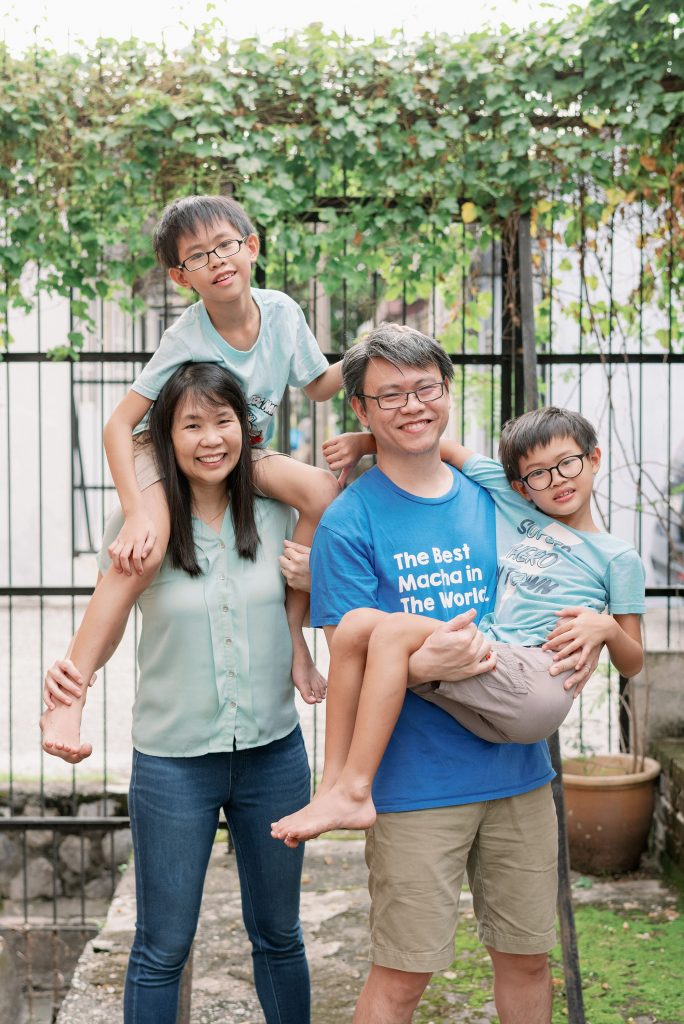 Daniel and Jessica have been married for 14 Years and live in Malaysia with their two boys – Zachary and Asher, and three fluffy cats.
Daniel and Jessica have been married for 14 Years and live in Malaysia with their two boys – Zachary and Asher, and three fluffy cats.
As a family they love mucking around in the great outdoors, hosting socials and getting off the beaten track.

